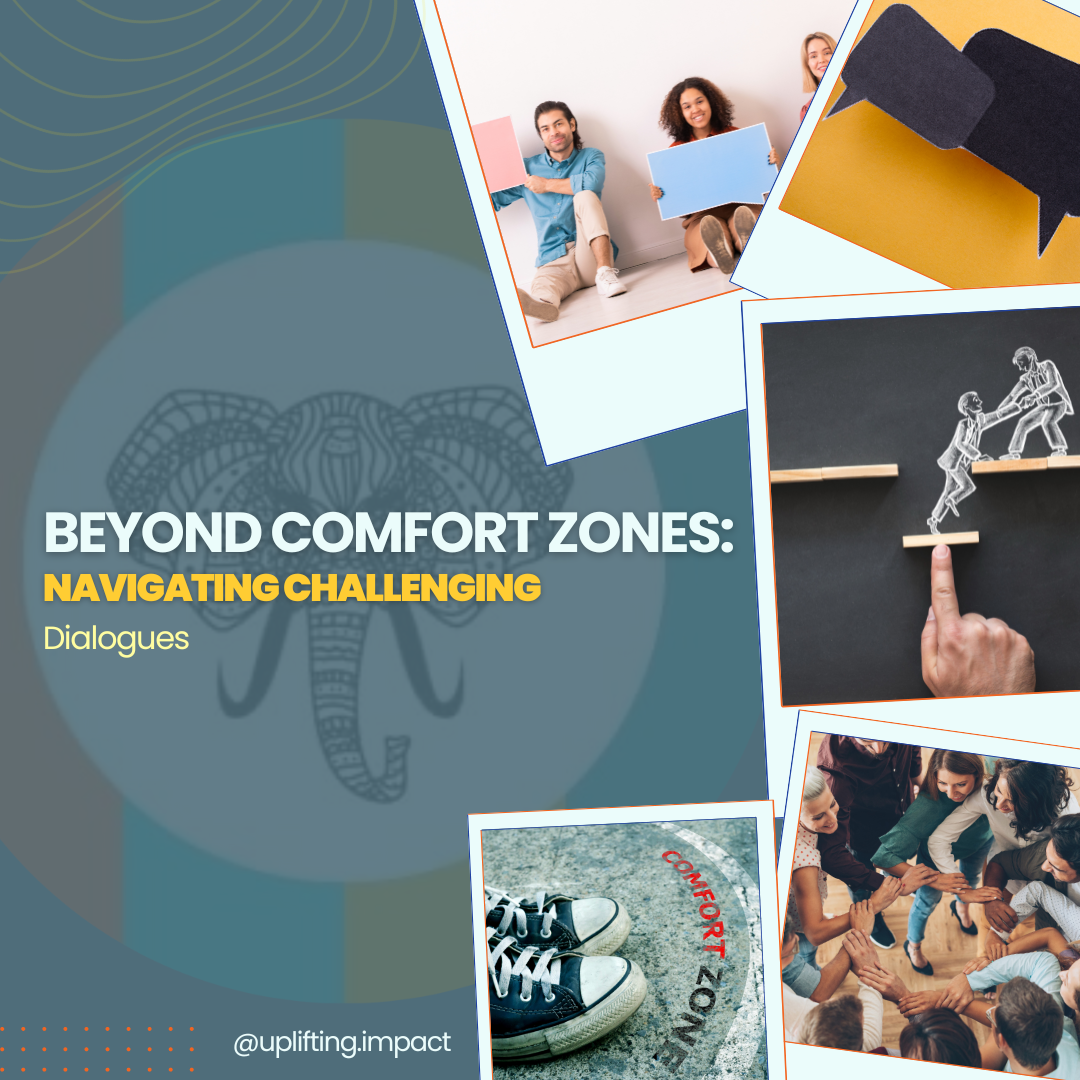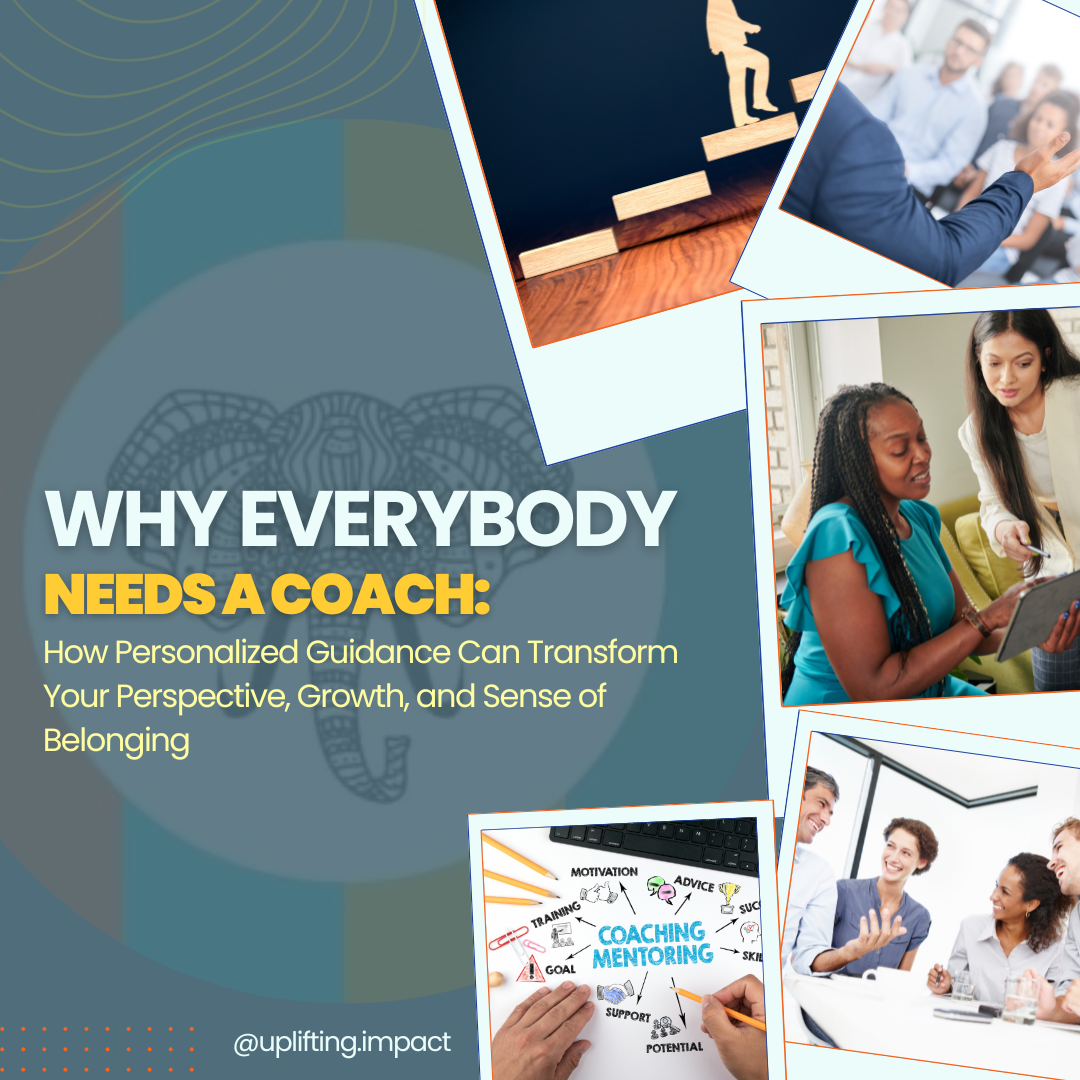Beyond Comfort Zones: Navigating Challenging Dialogues

In today's rapidly evolving world, navigating challenging conversations has become an essential skill for personal and professional growth. Whether it's in the workplace, in our communities, or even among friends, engaging in difficult dialogues can feel uncomfortable, but it’s through discomfort that real progress happens. Beyond the comfort zone lies an opportunity to listen deeply, reflect on different perspectives, and embrace the potential for positive change.
Why We Avoid Difficult Conversations
Most of us have been in situations where we steer clear of tough discussions. Maybe it’s the fear of offending someone, the discomfort of confronting our own biases, or simply the anxiety that arises from potential conflict. Challenging dialogues often bring emotions to the surface, requiring us to question long-held beliefs and confront issues that we may not feel equipped to handle. While avoidance might seem like the safer option, over time, it can result in misunderstandings, fractured relationships, or unresolved tensions. In organizations, avoiding these conversations can inhibit creativity and innovation, limiting the team's potential for growth. And personally, it can leave us stuck in a cycle of limited perspective.
Embracing Discomfort as a Pathway to Growth
The magic happens when we lean into discomfort. Pushing beyond our comfort zones opens doors to transformative experiences. When we choose to engage in tough conversations, we practice empathy, strengthen our problem-solving abilities, and build trust. This, in turn, fosters healthier, more productive relationships. I remember one particular moment early in my career when I had to confront a coworker about a misunderstanding that had been quietly simmering between us for weeks. Both of us were frustrated, but neither of us wanted to be the first to address the issue. I was nervous—afraid that it would become a conflict that could harm our working relationship. But avoiding it wasn’t working either. So, I finally took the leap. We sat down and had a tough but honest conversation. It was uncomfortable at first, but as we opened up, we realized that the root of the problem was a simple miscommunication. By the end of the discussion, not only was the issue resolved, but we also gained a newfound respect for each other. That moment taught me the power of challenging conversations—and how much stronger relationships can become when we tackle them head-on. Here are some strategies for navigating challenging dialogues:
1. Listen to Understand, Not to Respond
One of the most powerful tools in difficult conversations is active listening. Too often, we listen with the intent to respond or defend our viewpoint, rather than seeking to truly understand the other person's perspective. By focusing on understanding the other party’s concerns, values, or emotions, we can open up space for more meaningful and compassionate dialogue.
2. Acknowledge the Emotions Involved
Challenging conversations often come with a lot of emotional weight. Whether it’s anger, frustration, or hurt, emotions need to be acknowledged and validated. This doesn’t mean agreeing with everything that’s said, but simply recognizing the emotions as valid and real. By doing this, you create a safe space where the other person feels heard, making it easier to address the underlying issues.
3. Focus on Shared Goals
While the conversation may start with opposing viewpoints, it’s helpful to steer the discussion toward shared values or goals. What do both parties want to achieve? When you can identify common ground, it becomes easier to navigate disagreements and work collaboratively toward a solution. Remember, the goal is not to "win" the conversation but to find a path forward together.
4. Practice Patience and Give Space for Reflection
Not all difficult conversations will be resolved immediately. Sometimes, it takes time to fully process what has been said and reflect on next steps. Be patient with yourself and others. Offering the chance for follow-up conversations can be a helpful way to continue the dialogue once emotions have cooled and clearer thinking has emerged.
The Power of Language in Tough Conversations
The words we choose matter greatly in challenging dialogues. Using inclusive, non-judgmental language can help de-escalate tension and create a more open atmosphere for discussion. Instead of “you always” or “you never” statements, which often come across as accusatory, try framing your concerns around “I” statements. For example, “I feel concerned about…” or “I’ve noticed…” can shift the conversation to a less defensive posture. Furthermore, it's important to be aware of the power dynamics that may be at play. In situations involving authority or privilege, ensuring that all voices are heard and respected is crucial for equitable dialogue.
Beyond Words: Navigating Nonverbal Cues
Nonverbal communication—our body language, facial expressions, and tone of voice—plays a huge role in how challenging conversations unfold. Sometimes, what isn’t said speaks louder than what is said. Maintaining open body language, making eye contact, and speaking in a calm tone can help create a more trusting and receptive environment for dialogue. Being mindful of your nonverbal cues is key in ensuring that the conversation remains constructive and collaborative.
Learning From Every Conversation
Every difficult conversation offers a learning opportunity. Whether it ends in resolution, compromise, or continued tension, there’s always something to gain from the experience. The more we practice engaging in tough dialogues, the more adept we become at handling them.
Navigating challenging dialogues takes courage. It requires us to move beyond the comfort of silence or superficial pleasantries and step into spaces where discomfort might arise. However, in doing so, we unlock potential for deeper understanding, connection, and progress. Each conversation is a chance to break down barriers, bridge divides, and foster the kind of world we all want to live in—a world where open, honest, and compassionate communication leads the way.
So, the next time you find yourself avoiding a difficult conversation, remember: growth happens just beyond the comfort zone. Lean in, listen with empathy, and embrace the transformative power of dialogue.
Join us at Uplifting Mansion for a series of transformative conversations led by Deanna Singh and Justin Ponder. These gatherings are designed to equip you with practical tools for navigating our complex world, fostering understanding, and creating positive change in your personal and professional lives.
Register now on this link: https://bit.ly/4eANP6U

